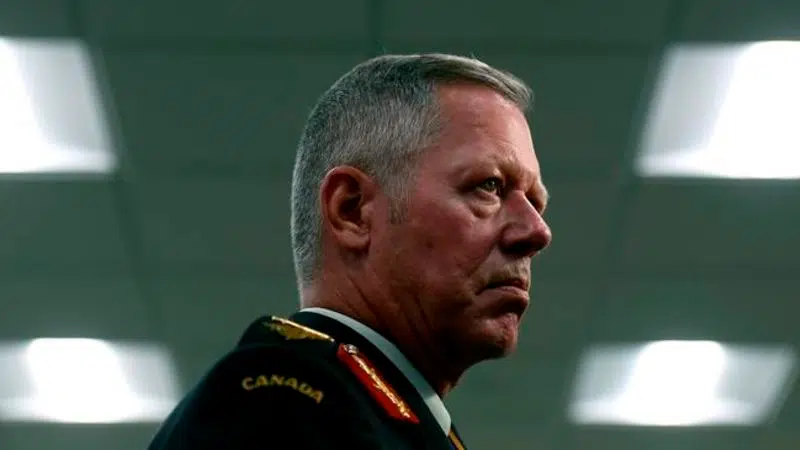
Top general says military started dealing with suspected neo-Nazi in the spring
OTTAWA — The military “did not miss” a Manitoba army reservist’s alleged links to a neo-Nazi group, but in fact first started looking into it months before media reports on the subject began to surface, Canada’s top general said Thursday.
Defence chief Gen. Jonathan Vance was speaking out for the first time about Master Cpl. Patrik Mathews, whose case has raised questions about whether the military is doing enough to address hate and right-wing extremism in the ranks.
Vance promised to be more active in rooting out such behaviour and beliefs from the military ranks, and issued a stern warning to those hoping to use the Canadian Forces as a training ground or avenue to spread their “vile ideology.”
“We’re a serious institution that does serious things to protect Canadians, to protect this country, to protect our way of life,” he said following a ceremony to install the military’s new chief of personnel.
